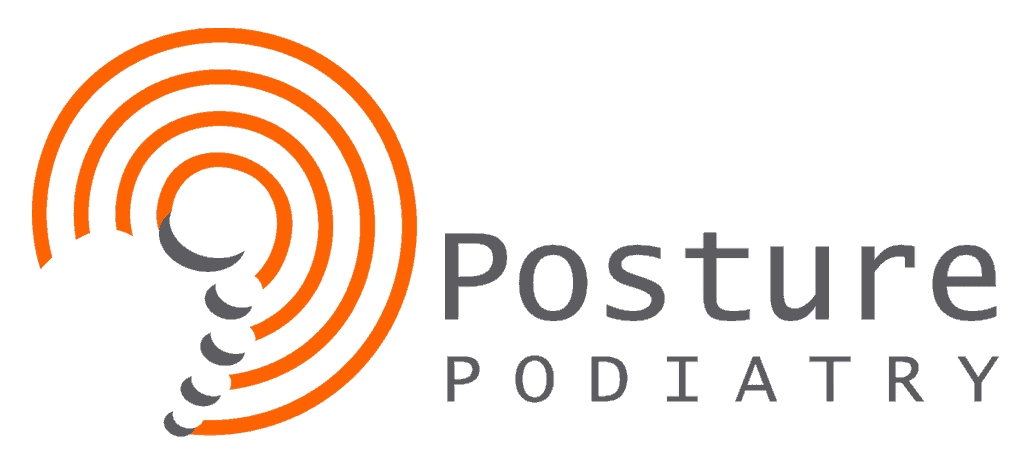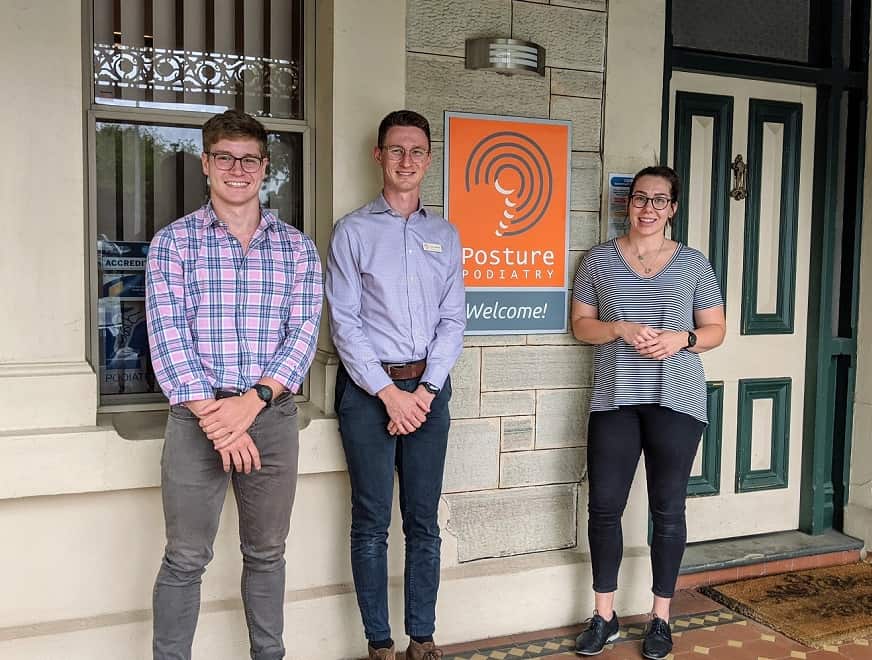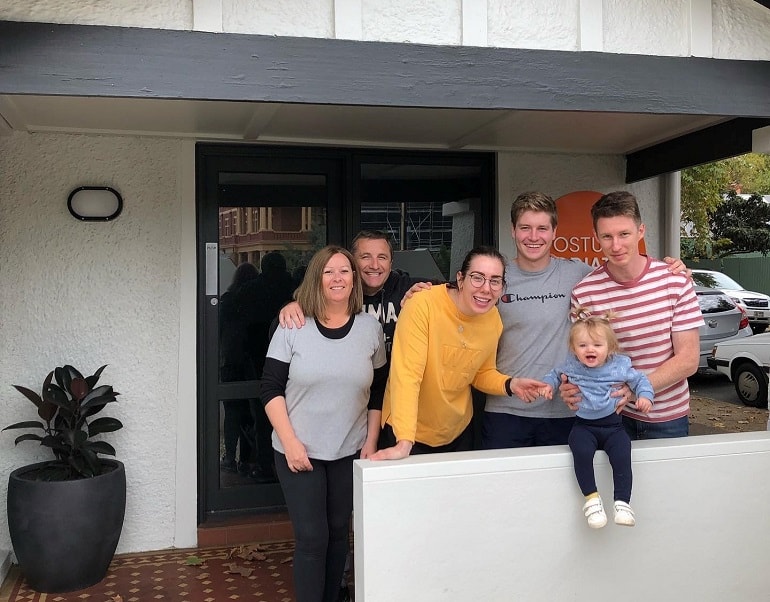What Are Blisters?
A blister is simply a small bubble which forms on the skin and is normally filled with fluid or serum usually as a result of friction, burning heat or pressure.
What Causes Blisters On Feet?
Foot blisters can have a number of different causes including:
- Friction or irritation;
- Uneven pressure dIstribution beneath the foot (biomechanical imbalance);
- Heat or burning (including sunburn);
- Heat and moisture combined;
- Insect or spider bites;
- Allergic skin reactions from adhesive taping or drug interactions;
- Poor fitting footwear; and
- Fungal infection.
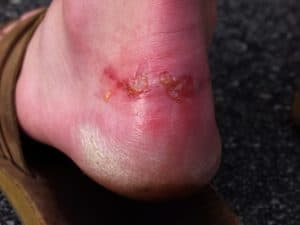
Most blisters which occur on the soles of feet are caused by excessive friction and moisture and are frequently seen with sporting activities including football, netball, running, hiking and walking. Excessive friction or pressure may be the result of foot bones being poorly aligned. Frequent recurrence of blisters may be a sign that your gait requires assessment.
Foot blisters may also be seen with excessive exposure to the sun or with scalding burns such as those experienced when you accidentally touch a hot stove or saucepan. These types of blisters should be managed in a similar way to all other burns of the skin.
Blisters may also be seen as a result of an infection to the skin. Small blisters can often be seen on the soles of the feet or between toes especially in the case of severe Athlete’s Foot or Tinea Pedis. The treatment of these blisters is quite different to those caused by friction or irritation. Appropriate antifungal medicaments need to be considered and antiseptic may be indicated where a break in the skin is evident.
Occasionally, other blisters may also occur as a result of an insect or spider bite but, fortunately, these types of blisters are encountered much less frequently than frictional blisters.
To schedule an appointment, call us on 8362 5900 or
BOOK ONLINE by clicking here
What’s the Best Treatment for Blisters On Feet?
Blister Treatment and Management…
Blisters caused by insect or spider bites are usually managed medically by your GP and may require the use of antiseptic and medications especially if the individual is allergic to the insect or spider.
Blisters caused by burns or scalding should be managed in the same way as all other burns with the immediate application of running cold water if available. Blisters should never be “popped or broken” as this may cause secondary bacterial infection and medical advice should be sought in the case of moderate to severe burns.
Blisters caused by fungal infection or Tinea Pedis require the use of specific anti-fungal medication and antiseptic needs to be considered where the skin has broken. Your podiatrist can provide guidance on the most appropriate form of treatment in this situation.
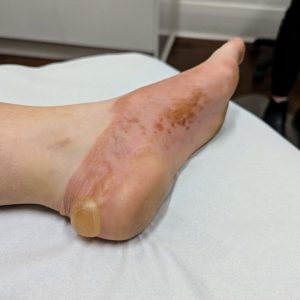
Frictional blisters caused by excessive heat, moisture and abnormal pressure should be managed in the following manner:
- Shoes should be fitted correctly
- Lacing should be adjusted to prevent slippage, friction and toe irritation
- Feet should be kept clean and dry
- Your podiatrist may suggest a special spray or taping to help prevent blisters
- Two pairs of socks and talcum powder may be advised to help reduce friction
- Tongue padding may be added to your shoes by your Podiatrist
- Custom shoe insoles or orthotics may be indicated to redistribute pressure away from blistered areas
- Socks may need to changed to specific blister prevention socks (e.g. Thorlo hiking socks)
- Seamless socks and shoes may need to be considered
- Keep feet and shoes as dry as possible
To schedule an appointment, call us on 8362 5900 or
BOOK ONLINE by clicking here
Blister Prevention for walking, running and hiking…
GENERAL HINTS FOR BLISTER PREVENTION:
- Apply Duct tape over dressings on particularly bad blister sites
- Keep feet/shoes dry when walking through rivers by wearing garbage bags on each foot – tie securely above the knees
- Make sure your First Aid kit contains Hypafix, surgical tape, rubbing alcohol, Opsite spray, sterile needles, Betadine, dressings, gauze, duct tape
- Always have a change of socks handy
If blisters on feet persisit, seek advice from your podiatrist for appropriate prevention on long term solutions.
To schedule an appointment, call us on 8362 5900 or
BOOK ONLINE by clicking here
